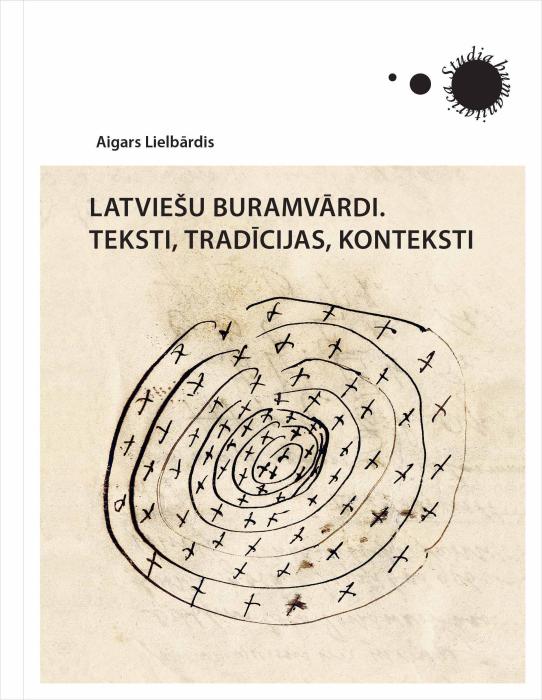Aigars Lielbārdis’s monograph "Latvian Charms: Texts, Traditions, Contexts" has been published

The publishing house of the Institute of Literature, Folklore and Art of the University of Latvia has released a new monograph by researcher Aigars Lielbārdis, focusing on Latvian charms, healing and incantation traditions, and the diverse contexts that shape and influence these texts and practices.
“The monograph examines questions that have been personally engaging or insufficiently explored for me as the author, as well as those that have sparked wider public interest — such as the antiquity of charms, their textual origins, influences and transmission, the church’s monopoly and the impact of religions on folk traditions, the relationships between pre-Christian and Christian texts and traditions, the social and economic boundaries of tradition, the influence of Soviet ideology on incantation practices and their research, the popularity of folk healing today, and more,” notes the author.
Charms are written and verbal formulas or groups of texts believed to possess extraordinary, supernatural power to achieve a specific goal — to heal, harm, request, or bind; to influence natural and social phenomena, interpersonal relations, or to bring about a favorable outcome. The tradition of charms encompasses the use of these texts, shaped by the inheritance of formulas, their contexts of use, functionality, and the people involved (practitioners). The charm tradition is sustained by or intertwined with other traditions and related genres — such as folk medicine, beliefs, and legends — which, by complementing one another in content, form a unified worldview and cultural experience shared by people in the past and today. Although individual experiences differ and each is unique, they share common features that allow them to be viewed and analyzed as a single tradition.
The cover design of the book features a drawing used for the enchantment of a compass rose. The “Rose Charms” are among the largest groups of texts within the corpus of Latvian charms and are connected to both written and oral traditions.
Dr. philol. Aigars Lielbārdis, researcher at the Institute of Literature, Folklore and Art of the University of Latvia, is the author or co-author of several books and collections, including 150th Collection: Charms (2020), Baltic Refugees on Gotland in the Photographs of David Holmert: 1944–1945 (2015), The History of Folklore Collecting in Photographs (2014), Psalm Singing in Latgale (2012), and Latvians through Latvian Eyes: Siberia. Timofeyevka (2011).
The monograph was prepared as part of the postdoctoral project “The Digital Catalogue of Latvian Charms” (No. 1.1.1.2/VIAA/1/16/217), supported by the European Regional Development Fund, and published with the assistance of the State Culture Capital Foundation.
Price: 8.00 EUR
The book is available for purchase at the Institute of Literature, Folklore and Art (Mūkusalas Street 3, Riga) or by writing to: apgads@lulfmi.lv.